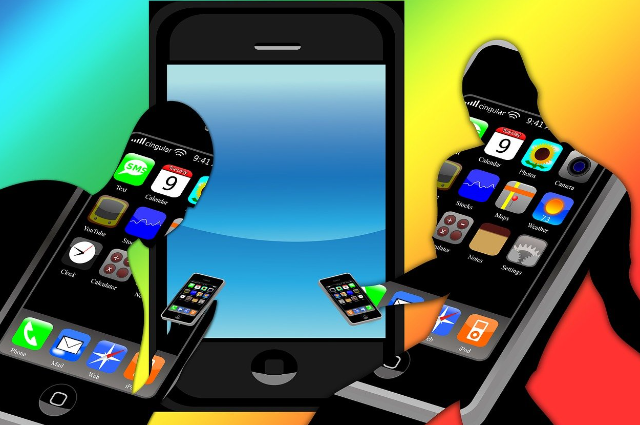
Imagine yourself walking into a room where every word you say, and every step you take, even every glance you make, is being watched. But it's not watched by strangers hiding in corners or stalking you. But by your own devices, apps, and even friends. Of course, this is not the plot of a science fiction movie. This is our reality. As we once knew privacy, it is dead. And we are the ones who killed it.
The Age of Oversharing
Think about your daily life. How often do you post updates about where you are, what you ate, or what you are thinking on your social handle? Social media platforms have literally trained us to share things constantly. From vacation photos to your political opinions, we put our lives online for everyone to see—every post, story, or “like” leaves a digital footprint. The more we share, the more we expose ourselves. What was once private is now public, and we are doing it voluntarily.
We have also become addicted to the attention and validation these platforms give us. A like or comment triggers our small rush of happiness, and we keep coming back there for more. In this pursuit of digital approval, we sacrifice our privacy without even noticing it. Every update, every check-in, or personal photo we post becomes part of our permanent online record.
Devices That Watch Us
It’s not just social media. Think about your smartphone, smart TV, or even smart home devices. These devices collect massive amounts of information about us. Like what we watch, what we search for, and sometimes even what we say aloud. Those voice assistants are listening more than we even realise. Even when we think our devices are off, data is being collected in ways we may never see it.
Apps ask for permissions that often feel very unnecessary. Why does a flashlight app need access to your location or contacts? Many of us click “allow” without thinking. We ignore the risks. In doing so, we hand over control of our personal lives to companies that profit from our information.
The Illusion of Control
Some people think they can control their privacy by adjusting settings or using secure apps. But this is often just an illusion. Data brokers track our online behaviour across multiple platforms and create detailed profiles about us. Companies know about your habits, your preferences, and even your fears. They use this information to influence your choices. From what products you would buy to what news you see.
Even if we wanted to be completely private, it’s almost impossible in this modern world. Emails, messages, online shopping, banking, all of these activities do leave traces. Every click, swipe, or tap contributes to the giant puzzle of who we truly are. The reality is, privacy is no longer just a personal choice; it has become a commodity.
We Gave It Away Voluntarily
The truth is uncomfortable, but we have to accept that we gave it away ourselves. We chose convenience over secrecy. Online shopping makes our lives easier, social media platforms keep us connected, and apps give instant answers to our every question. But every convenience comes at a cost. Which they don't really realise. We exchange our privacy for speed, comfort, and entertainment. We are willing to be watched, tracked, and analysed because the benefits feel immediate.
Even when news stories warn us about data breaches, we continue. We accept terms and conditions without reading them. We forget that every “agree” button may be a ticket to lose control over our personal lives. We are complicit in the death of privacy because we prioritise the present moment over long-term consequences.
The Cost of a Public Life
What does losing privacy mean for us? It affects how we think, speak, and act. When we know we are being watched, even digitally, we change our behaviour. We may censor our opinions, avoid certain actions, or live with constant anxiety. Surveillance doesn’t just threaten our secrets; it changes who we are.
Moreover, data in the wrong hands can be dangerous. Hackers, criminals, and even corporations can misuse personal information. Identity theft, targeted manipulation, and cyberbullying are only a few examples of how losing privacy can hurt us. The digital world we built for connection has also become a world where our personal lives are vulnerable.
Is Privacy Really Dead?
Some people might argue now that privacy can be reclaimed. Those encrypted messaging, secure browsing, and careful sharing are the tools to protect ourselves. But no, the truth is, in this modern age, privacy is more of a myth than a reality. Even the most careful user leaves their traces somewhere. Privacy is no longer guaranteed; it is something we fight for.
The death of privacy is not caused by a single villain. It is the result of countless small decisions we make every day. Such as posting a photo, accepting an app permission, or using a service without thinking. It’s easy to blame big tech, but the reality is harsher: that we killed privacy ourselves, slowly and willingly.
Privacy is dead because we traded it for convenience, attention, and connection, as technology didn't make it impossible. We opened our lives to the world in search of likes, speed, and comfort. We forgot that what is given freely can be hard to take back. Today, we live in a world where our data is public property. Where surveillance is so normalised, and where our secrets are no longer truly ours.
The question now is not whether privacy can survive; it is whether we are willing to change our habits, our values, our personal space. And are we willing to fight for even a small corner of secrecy in a world designed to expose everything? We may have killed privacy, but recognising our role is the first step to protect what little remains.
. . .
References:
